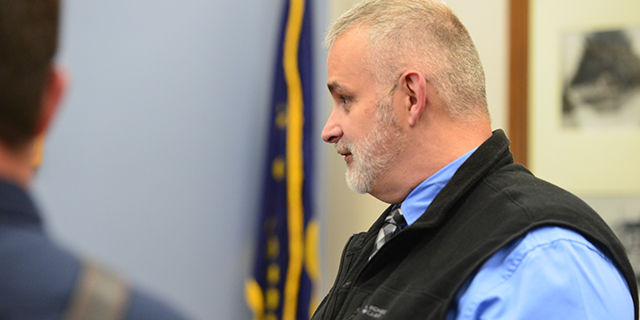Letters to the Editor
Published 1:43 pm Sunday, December 10, 2023
One of the most remarkable things about the testimony in the Jan. 6 investigation was how one-sided it was — almost all of it from Republicans. Part of the reason for this is that they were there, at the scene of many crimes.
Trending
It also serves to defang the claims that the election was stolen from Trump, based on allegations of fraud and voting security violations. More specifically, and in refutation of the recent letter listing alleged voter fraud stories, former Trump campaign lawyer Alex Cannon oversaw allegations about voter fraud, set up a voter fraud tip line and testified about a conversation with chief of staff Mark Meadows, saying that none of the allegations had any evidence of changing election results.
President Trump’s campaign manager, Bill Stepien, testified of the campaign’s efforts to investigate all allegations but that they kept coming up empty. Acting Deputy Attorney General Richard Donoghue testified of daily phone calls with Trump explaining what the Justice Department’s investigations showed: “We’ve done dozens of investigations, hundreds of interviews. The allegations are not supported by the evidence developed. We’ve looked in Georgia, Pennsylvania, Michigan, Nevada.”
Given this, in conjunction with the mountains of other evidence, confessions of the guilty, and large number of people who have given mutually corroborating testimony, any recent presentation of voter fraud stories are nothing but deliberate lies.
Trending
As for Speaker Mike Johnson’s role in all of this, he eagerly echoed Trump’s false claims about vote by mail fraud and in a post-election interview claimed that both Dominion Software and Hugo Chavez (who died in 2013) were involved. This demonstrates how unhinged from reality he is, no doubt a desirable attribute for being elected Republican Speaker of the House.
Johnson put together a case that strung together a series of implausible legal claims that three-quarters of the Republicans supporting overturning the election would come to rely on, making Johnson one of the most important architects of the Electoral College objections.
Despite his smooth talking and low-key personality, this makes him disproportionately dangerous to American democracy. If Hannah Arendt’s work on totalitarian regimes taught us nothing else, the most sinister designs can be delivered in the most banal guise.
Chris Esposito
La Grande
Last spring, my wife and I drove to Texas to visit her folks. From Oregon, our road trip took us through Idaho, Wyoming, Utah, Colorado, Kansas, Oklahoma, Texas, New Mexico, Arizona and Nevada — a trip of about 7,000 miles.
One thing that stuck in my mind from that trip was the proliferation of “dollar stores” along the route. I was amazed to see the number of small towns with boarded-up “Mom and Pop” buildings and new Dollar Generals on the edge of town. We made a game of calling “Dollar General!” at each new sighting.
Now surprise-surprise, Dollar General is building in Wallowa. As we learned from Erika Polmar’s excellent and well-researched “Other Views” column the Chieftain, there are many reasons to oppose Dollar General. Erika mentions the killing of local businesses, profits leaving the county, poor employment practices, coercion of suppliers, negative property values, lawsuits, etc.
In addition to the important negatives she pointed out, I also feel that replacement of local business by chains destroys the uniqueness and character of individual small towns and communities, resulting in a bland sameness.
Is this what we want here? I’m hoping that Wallowa County will be different.
Jon Larson
Enterprise
When judicial candidates accept campaign contributions from their constituents, it shows a connection to the community; it is commonplace, ethical, and a legal right as citizens of our district. In the last local judicial election in 2018, both candidates, Wes Williams and Mona Williams, accepted donations. Doing so is not untoward, as suggested by Jared Boyd in a recent news article. Rather, these donations show support and trust from a community that believes the candidate will apply the community’s values if elected.
A judge is not beholden to anyone if their campaign accepts donations from community members. Most citizens are fortunate to never have to go to court or be before a judge, and their donations are simply a way to have a voice in the leadership roles in our community.
Furthermore, judicial candidates do not know who donates to their campaigns. The judicial code of conduct requires the candidate not solicit nor be notified of contributions. Although accidental and incidental knowledge of donations will occasionally happen and are not unethical, Judge Williams and his campaign committee take this requirement very seriously now and when he ran in 2018.
Judge Williams’ campaign proudly and humbly accepts contributions from the citizens of Union and Wallowa counties as well as from his family. Donate to a campaign or not, it is the voter’s right to choose, and it has nothing to do with how judges make their legal rulings.
Judge Williams will continue to uphold his campaign promises to ensure equality before the law, treat all people with respect, and protect our constitutional rights.
Anna Stever
Citizens to Re-Elect Judge Wes Williams
La Grande
Am I the only one who finds it ironic and laughable that the Oregon GOP wants to pass a law making teacher strikes illegal?
Have they forgotten the GOP walkout of the Oregon Senate this year that stopped all meaningful and needed legislation? Which, by the way, was illegal.
Hypocrisy, thy name is GOP.
Sandra Kunz
Bend








